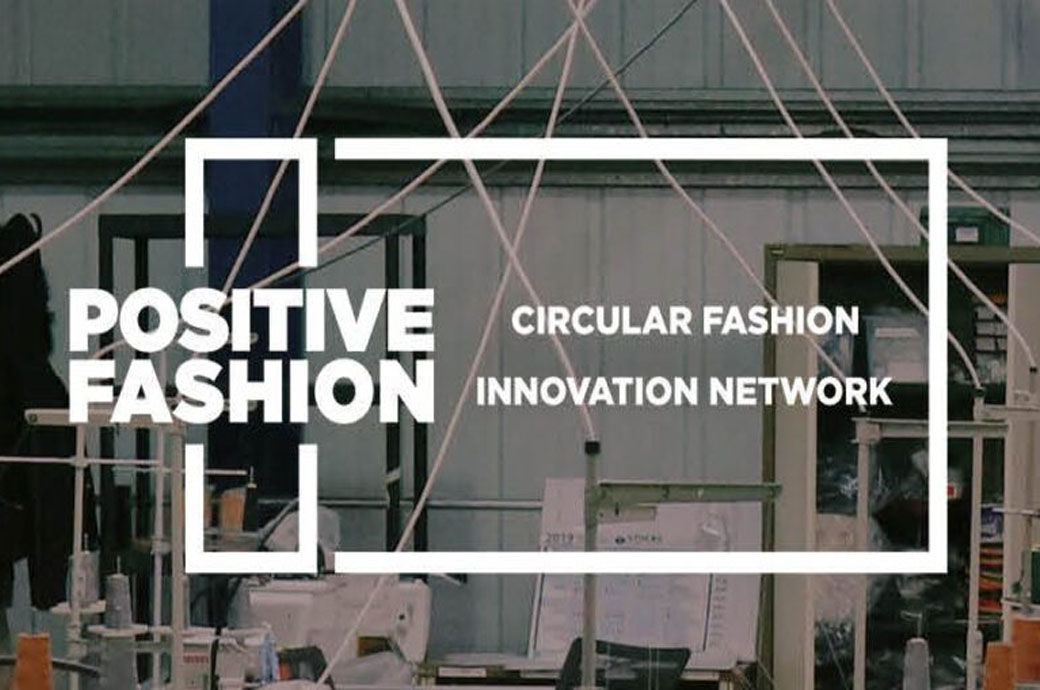[ad_1]

The UK Fashion & Textile Association (UKFT), the British Fashion Council (BFC) and UK Research and Innovation (UKRI) have launched the Circular Fashion Innovation Network (CFIN) with a two-year ambition to create an industrial scale change programme for the UK fashion and textile industry through a lens of circularity and innovation.
The fashion industry is a very significant part of the UK economy, contributing £29 billion to the UK gross domestic product (The Economic Impact of The Fashion Industry, Oxford Economics, 2022).
However, it is estimated that the consumption of new clothes in the UK is higher than any other European country (The Circular Fashion Ecosystem Report, Institute of Positive Fashion, 2021). High consumption is coupled with low usage and large amounts of waste – there is therefore an urgent need to convene stakeholders and enable an actions-oriented forum to further the sustainable fashion agenda.
The network, which is co-chaired by BFC CEO, Caroline Rush and UKFT CEO, Adam Mansell, will sit under the Institute of Positive Fashion (IPF) and will bring together industry, innovators, investors, academia and broader stakeholders through an action led roadmap to accelerate the UK to a leading circular fashion economy, the UKFT said in a press release.
The advisory board spans luxury, premium, high street, supermarket and value led businesses as well as representatives from UKRI, Academia and NGOs. The role of the advisory board is to focus on the vision of the network, receive briefings from the working groups and to address scalability across the UK. The network’s action led road map will be developed in accordance with competition laws and other applicable laws and regulations. The network will receive £1.8 million which is jointly allocated to the BFC and UKFT to run the network, build the community, accelerate knowledge share to members and industry and to activate required industry-led research.
The CFIN will play an essential central convening role in UKRI’s £15 million circular fashion programme to accelerate positive change within the fashion industry. Other programmes include the Recycling Sorting Demonstrator led by UKFT; NERC’s Network Plus programme led by Exeter University, Leeds University and Northumbria University which will provide research capability focused on the improvement of data analysis, establishing research-validated baselines and environmental impact and circularity. Through the BFC’s colleges’ council and UKFT education partner network briefings on the programme to broader academic institutions will take place.
The CFIN is the first industry-led programme of this kind supported by UKRI. Its working group leads will report to the UKRI programme board, making it central to UKRIs £15 million commitment to supporting an innovation-led approach to circular fashion.
The six working groups within the programme are circular business models, recycling infrastructure, sustainable manufacturing, novel technology, diverse and future-proof workforce and green growth.
Circular business models focus on reduction of waste and overproduction by embedding circular business practices; consideration of regulation changes. Recycling infrastructure will optimise closed-loop recycling processes, develop partnerships and develop foundations for extended producer responsibility (EPR). Sustainable manufacturing will have lower environmental impact by achieving supply chain resilience, creating deeper links between brands and manufacturers, and scaling digital traceability tools. Novel technology aims to scale up and integrate novel technologies that support circular fashion. Diverse and future-proof workforce will upskill the workforce and build a diverse and future-proof talent pipeline to close the skills gaps. Green growth will create economically viable Circular Fashion Products, services, and IP which create high value jobs, support growth through responsible design, retail and manufacturing.
“It has never been more important to combine knowledge and networks to tackle the challenges of sustainability. We’re excited to work with the BFC and other partners via the Circular Fashion Innovation Network to establish both direct interventions and long term plans to help the transition towards a new circular economy in the UK. Our particular area of focus will be sustainable manufacturing and recycling infrastructure, which we believe will be key drivers in helping to build the most resilient, sustainable and competitive sector for future generations,” Adam Mansell, CEO UKFT, said.
“We look forward to The Circular Fashion Innovation Network being the catalyst for essential transformation within the fashion industry. Collaboration has always been our guiding principle in effecting change. The new Circular Fashion Innovation Network rests on this very spirit – our cross sector advisory board will combine and advance novel technologies and approaches, which we hope will create a world-class blueprint here in the UK. It builds on the BFC’s circular fashion ecosystem work, established in 2020 as a multi-year endeavor to establish not just what needs to be done to achieve circularity in our fashion industry, but who needs to do it,” Caroline Rush, BFC chief executive, said.
“BFC and UKFT have a proven track record of working together on government relations and international trade, it now makes sense that we bring together our two networks which covers fashion and textile designers, retailers, manufacturers, tech businesses, government, media, professional services, investors and consumer audiences, to tackle our biggest challenge, our impact on the planet and with that the future of the UK fashion industry,” concluded Rush.
The Circular Fashion Innovation Network (CFIN) has been launched by UKFT, the British Fashion Council (BFC), and UK Research and Innovation (UKRI) with a two-year goal to promote circularity in the UK fashion and textile industry.
Despite the UK fashion industry’s significant contribution to the GDP, it faces challenges with high consumption, low usage, and waste.
[ad_2]
Source link











































